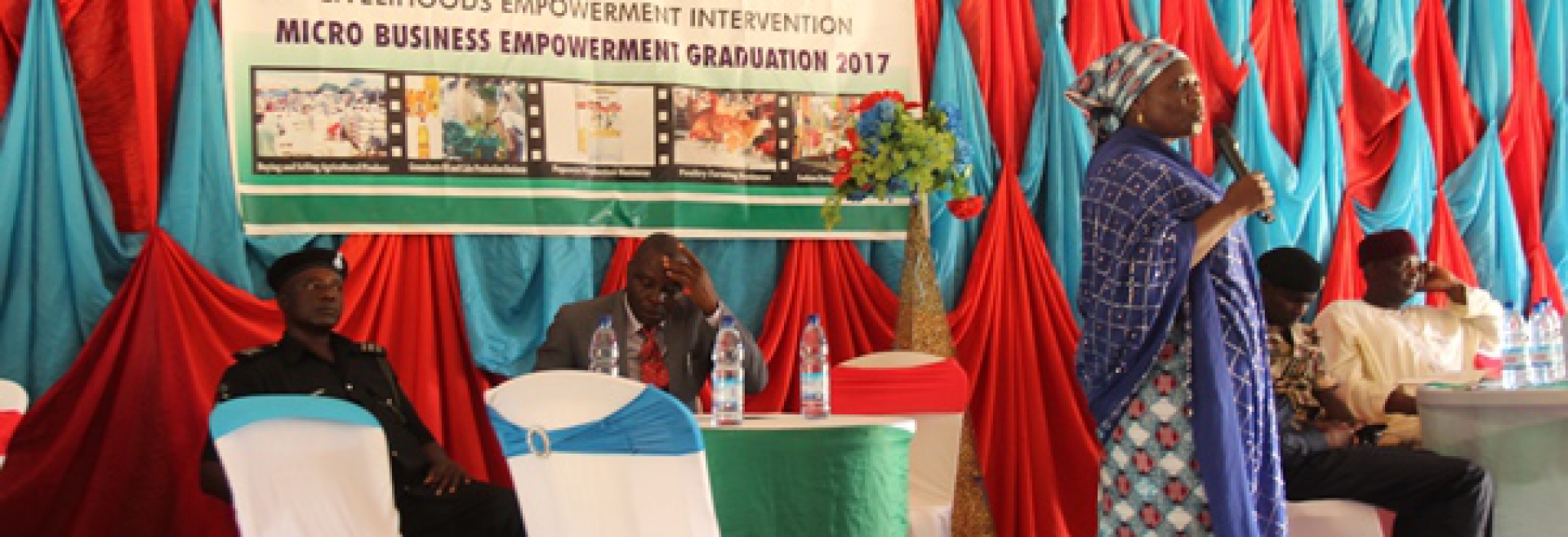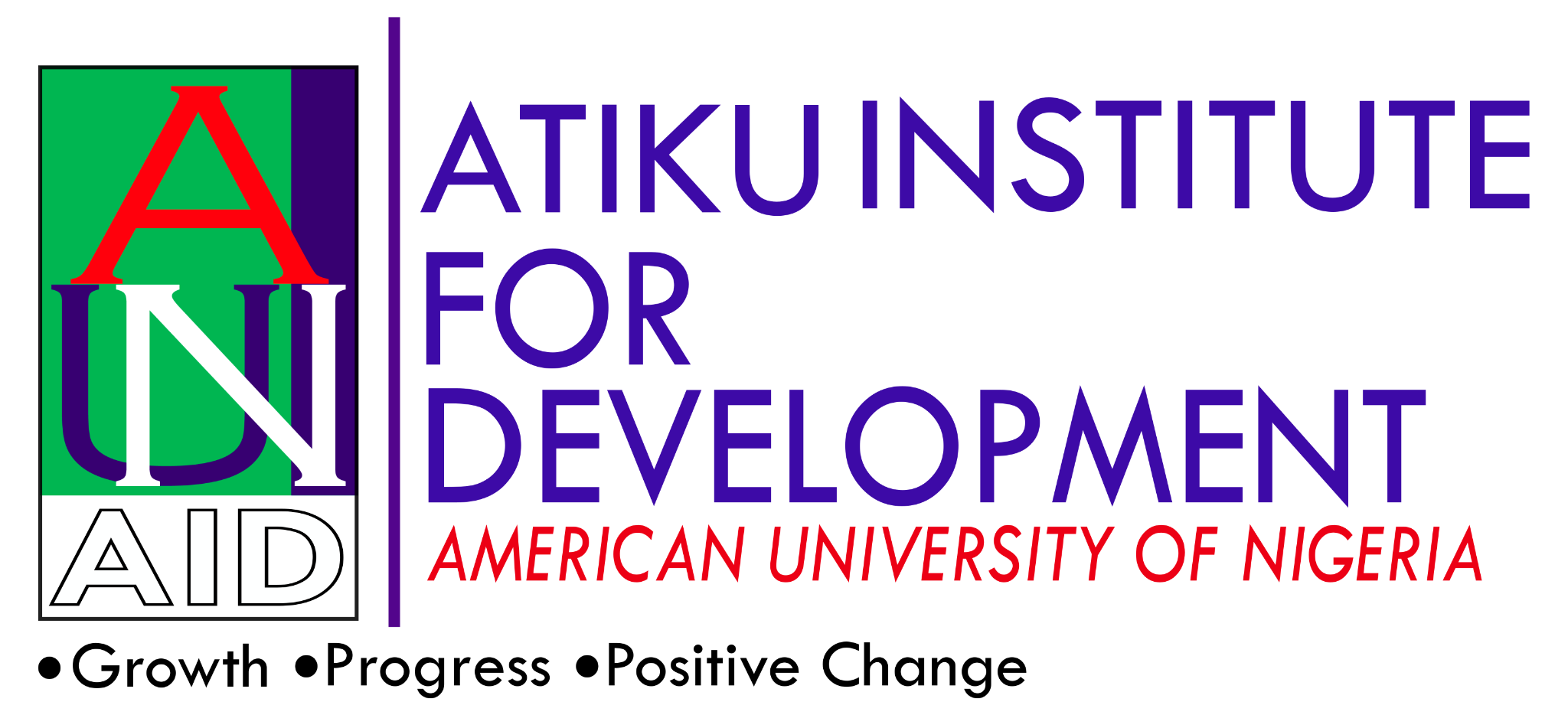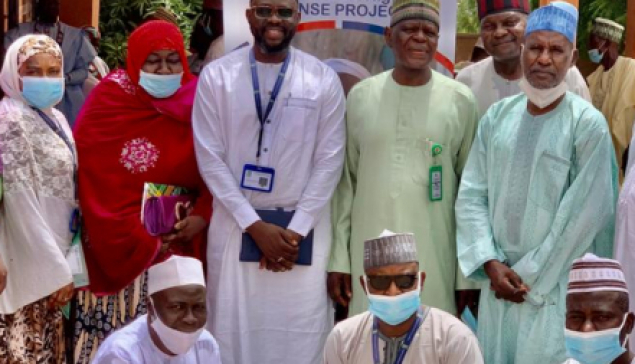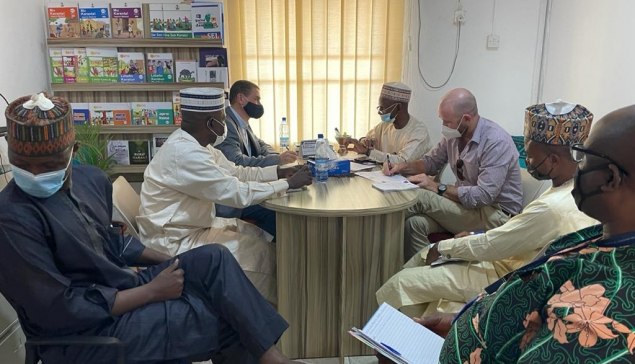
AUN/UNHCR Empowers Returnees in Small Business Development
A 50-year-old mother of six from Imo State, Merit Nwankwo, was among the beneficiaries in Mubi North, Adamawa State, who received a start-up kit from the AUN/UNHCR livelihood cooperative and small business development scheme on November 2.
Mrs. Nwankwo is the team lead of Women of Action Cooperative Group, a 20-person group which received about 15 bags of beans, maize, and grains and a key to a warehouse to kick-start their business.
“We will be buying and selling foodstuff in Mubi,” she said at the graduation ceremony. Each group had five minutes to share their strategic growth plan for the next six months. She stated that as a group, what binds them together is love. “We will contribute money to support any of us in need; we do not look at religion or tribe. We are one!”
The AUN/UNHCR small business development project was also implemented in Michika and Mubi South. Its core pedagogy in the training includes financial literacy, idea creation, launching a business venture, and sustaining a business.
More than 95 percent of the world’s businesses are small, medium or micro-sized enterprises. UNHCR says it is committed to helping refugee entrepreneurs and business owners develop new livelihoods or restart enterprises in their countries of displacement by matching their skills to market opportunities through vocational training.
The project empowers beneficiaries in groundnut processing production, fashion designing, poultry husbandry, buying and selling of agricultural produce, cake and popcorn production.
The topics were carefully selected based on the market need analysis of existing goods and services gaps and the opportunities available, said the Project Coordinator, Ahmed Mohammed.
“We noticed that most people had passion for running a business but without the technical know-how.”
He expressed hope that the start-up kit given to the beneficiaries, from the groundnut processing machines, sewing machine and kits, and farm produce, to the 250 broiler birds for poultry farming, was not coincidental. “Based on our research, for instance, it was discovered that there was high demand in locally processed groundnut oil but less supply because low income earners cannot afford a processing machine.”
Drawing from the SWOT analysis in needs assessment research, they were able to address the existing challenges in running such businesses in that particular environment. “We have equipped them with knowledge such as in value addition, which increases your competitive advantage and differentiates you from the competition.”
Community leaders and members of the public witnessed the graduation. The event also featured the ribbon cutting and official launch of the cooperative store in its various locations in the city.
Mubi North Women’s Leader, Hannatu Stephen, tasked the women to maximize this golden opportunity to start afresh after the Boko Haram catastrophe that devastated Mubi. “You have become the eye of this community. I want to be able to send young girls to you for training. The ball is in your court, hold it well.”
The women are positive and confident in their strategic growth plan within the next six months. Ataimakijuna (meaning “helping each other”) Cooperative group leader, Mrs. Abimbola Olaniyi, disclosed that their cooperative growth plan in two months is to double the broilers from 250 to 500 and each will be selling at N1,800. She is banking on the Christmas holiday to make enough sales to grow the investment.
Reported by Nelly Ating


